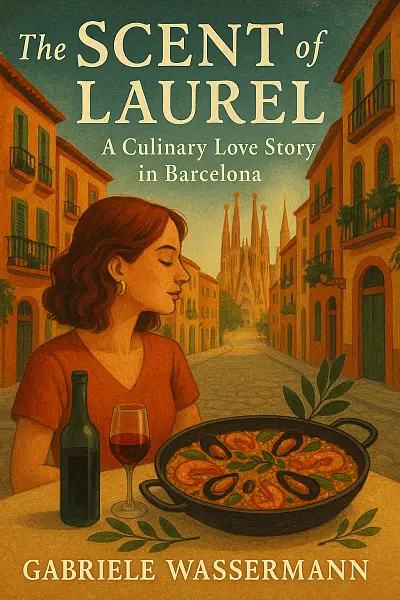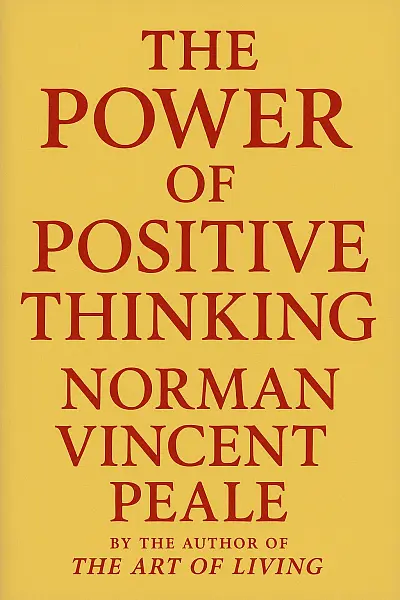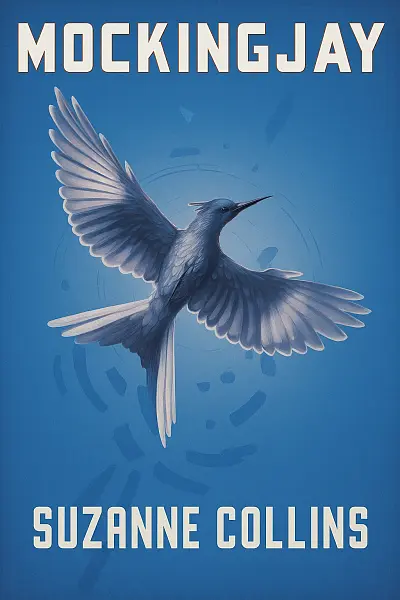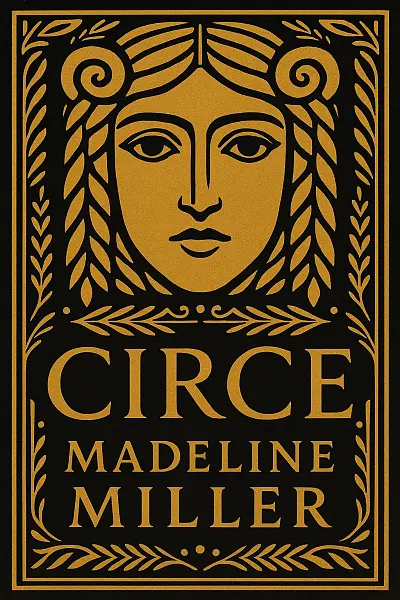
Circe
by: Madeline Miller
Circe, daughter of Helios, grows up an outsider among the gods, longing for connection in a world that sees her as neither powerful nor beautiful enough. Everything shifts when she discovers her hidden talent for witchcraft—a force the gods fear. Banished to a remote island, Circe is thrust into isolation, but finds freedom to explore her magic and forge bonds with mortals who land on her shores.
As her powers grow, Circe faces threats from both men and gods, caught between longing for acceptance and the urge to claim her own destiny. The lush, lyrical prose pulls you into her struggle: will she choose the gods she’s born from or the mortals she’s come to fiercely love?
"“To find your own power, you must risk standing alone in the storm.”"
Let's Break This Down
The Author's Voice
Atmosphere
- Dreamy, hypnotic, and myth-soaked — the book envelops you in a lush, otherworldly environment
- Intensely sensory: salty breezes, sun-bleached cliffs, and dark forests are rendered with intimate, tactile detail
- A gentle undercurrent of melancholy and longing, with moments of both danger and incandescent triumph
- Mythical realms feel grounded, real, and utterly alive; even the gods bear the weight of emotional consequence
Prose Style
- Luxurious, lyrical, and beautifully restrained
- Sentences often feel incantatory—marked by rhythmic repetition and poetic phrasing
- Vivid imagery without florid excess; Miller conjures scenes in a way that feels both modern and ancient
- Dialogue is minimalist, but every word matters—conversations simmer with subtext and emotional texture
- First-person narration is steeped in introspection, giving us direct access to Circe's hopes, doubts, and wisdom
Pacing
- Measured and contemplative, with a steady unfolding of events over centuries
- Focuses on intimate character moments and personal growth rather than relentless action
- Some stretches linger on internal conflict and transformation rather than external plot twists
- Satisfying slow burn: the book rewards patient readers who enjoy gradual, immersive storytelling
- When tension spikes—betrayals, magical confrontations—the drama suddenly surges, making those moments feel earned and electric
Overall Feel
- Epic yet intimate—grand myth retold through the delicate, personal lens of a single, unforgettable voice
- Brims with feminist undertones, resilience, and the painful yearning for belonging and self-definition
- The writing invites you to savor each page, making the tale feel timeless, gorgeous, and deeply human
Key Moments
-
Witchcraft as self-discovery: Circe’s exile transforms isolation into empowerment with spells forged in loneliness
-
Iconic showdown: Odysseus and Circe’s sizzling, ambiguous conversations crackle with power games and mutual vulnerability
-
Divine cruelty meets mortal yearning: Sharp prose unpacks toxic godly families and the hunger to belong
-
The Minotaur’s birth scene: Grotesque, gut-wrenching, and tender—motherhood painted in chilling mythic hues
-
Shifting identities: Circe grows from sidelined nymph to mythic legend in rebels-against-patriarchy style
-
Lyrical writing: Every line drips with tactile detail—wild herbs, brine, monster’s breath—that lingers long after
-
Redemption and radical empathy: A goddess grappling with forgiveness, bitter betrayals, and the courage to choose love over immortality
Plot Summary
Circe, the immortal daughter of the sun god Helios and the nymph Perse, discovers early on that she is different from her powerful family—possessing a unique affinity for witchcraft rather than traditional godly might. After turning the nymph Scylla into a monster out of jealousy, Circe is banished to the island of Aiaia. There, she hones her skills, transforms men who wrong her into pigs (including Odysseus’s crew), and encounters notable figures from Greek myth such as Daedalus, Hermes, and Medea. The story builds as Circe gradually claims her independence and agency, especially through her relationships with Odysseus and her son, Telegonus. Ultimately, Circe rejects the immortality and power structures of her birth, choosing a mortal life filled with self-determination and hard-won peace.
Character Analysis
Circe herself is the heart and soul of the novel, transforming from a naïve, insecure outcast to a formidable, self-assured, and compassionate woman. Her journey is marked by loneliness, love, betrayal, and hard-earned wisdom, with her motivations evolving from a desperate need for acceptance to a courageous assertion of her own identity. Odysseus, the famed Greek hero, enters as both a lover and a mirror to Circe’s complexity—brilliant, but deeply flawed. Telegonus, Circe’s son, catalyzes further growth, pushing Circe to confront her own fears about motherhood and legacy. Even minor characters like Hermes, Daedalus, and Penelope are rendered with nuance, each bringing out different facets of Circe’s personality.
Major Themes
At its core, Circe is about transformation—not just magical, but personal and existential. The novel explores the struggle for self-definition, especially as a woman in a world ruled by powerful men and gods, demonstrated by Circe’s painful exile and subsequent self-discovery. Power—its uses, abuses, and consequences—pervades the narrative, seen in Circe’s evolution from someone tormented by gods to someone who creates her own fate. Miller also delves into themes of motherhood, love, loss, and the courage to choose one’s own path, highlighted when Circe ultimately embraces mortality and autonomy.
Literary Techniques & Style
Madeline Miller’s writing is lyrical and intimate, blending poetic imagery with brutal realism. The first-person, present-tense narration draws readers into Circe’s psyche, creating a sense of immediacy and deep empathy. Miller employs rich symbolism—most notably Circe’s island as both prison and sanctuary, and her magic as a tool of both destruction and healing. Metaphors of weaving and transformation recur, mirroring Circe’s internal changes and her power to alter reality. Quiet moments are woven skillfully between mythic showdowns, giving the story a gripping yet contemplative pace.
Historical/Cultural Context
Set in the mythic era of ancient Greece, Circe draws heavily on Homer’s Odyssey while showcasing a feminist reimagining of classical mythology. The narrative challenges ancient Greek norms surrounding gender, power, and divinity, presenting a marginalized voice within an aggressively patriarchal world. Miller’s background in classics and extensive research allow her to subvert and deepen well-known stories while staying true to the heart of the myths.
Critical Significance & Impact
Circe has been widely acclaimed for its lush prose, empathetic characterizations, and bold reworking of Greek mythology, offering a fresh lens on ancient tales. Particularly praised for centering a female perspective, the novel has influenced contemporary discussions on gender in myth and literature. Its popularity has cemented it as a modern classic, often assigned in schools and book clubs alike for its accessibility, depth, and emotional resonance.
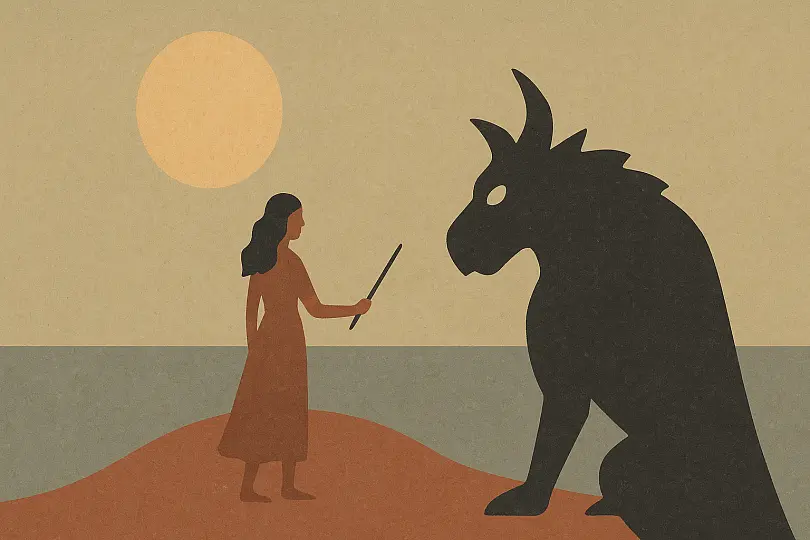
A witch defies gods and fate on an island of exiles and transformation
What Readers Are Saying
Right for You If
If you’re the kind of reader who loves a lush retelling of myths and legends—especially ones with strong, complicated female leads—then Circe is honestly about to be your new obsession. Fans of Greek mythology, historical fiction, or honestly anything by authors like Madeline Miller, Pat Barker, Naomi Novik, or Margaret Atwood are going to eat this up. If you appreciate beautiful, lyrical prose and stories that dig deep into identity, power, and transformation, you’ll be totally swept away. Anyone who’s into slow-burn character development and watching someone grow over a lifetime will definitely find a lot to love here.
But, heads up: if you’re craving non-stop action or super twisty plots, this one might feel a bit slow to you. The pacing is pretty mellow, and Miller takes her time painting Circe’s inner world. Also, if you’re not really into mythology or fantasy elements, or if you want your stories fast-paced and plot-heavy, this probably isn’t your jam. Some folks also find Circe’s long stretches of introspection a little too quiet.
All in all, Circe is perfect for readers who care about gorgeous writing, complex heroines, and stories that make you think. If your idea of a good read is chilling with a book that blends myth, magic, and feminism, this one’s seriously calling your name. But if you need your fiction fast and furious, or myth-inspired stories just aren’t your thing, you might want to grab something else off the shelf.
What You're Getting Into
Ready to be swept away by ancient myth with a magical twist?
Circe by Madeline Miller is a gorgeously written reimagining of the legendary witch from Greek mythology, following her journey from outcast nymph to powerful sorceress.
Thrown into exile, Circe must confront gods, monsters, and her own place in a world that fears her strength—leading to a tale that's both epic and deeply personal.
If you love stories of transformation, fierce independence, and lush, atmospheric drama, you’ll be completely enchanted by this magical adventure.
Characters You'll Meet
-
Circe: Exiled nymph and the novel’s compelling protagonist, Circe’s journey is one of self-discovery as she transforms from an outcast among gods to a powerful, independent witch.
-
Helios: Sun god and Circe’s distant father, whose cold ambition and authority loom over Circe’s early life, representing the harsh world of the immortals.
-
Odysseus: Wily mortal hero who washes ashore on Circe’s island, forming a layered connection with her that profoundly shapes both their fates.
-
Telegonus: Circe’s son with Odysseus, whose presence challenges Circe’s powers of protection, love, and self-sacrifice as she grapples with what it means to be a mother.
-
Pasiphaë: Circe’s ruthless sister, queen of Crete, whose relationship with Circe underscores themes of jealousy, rivalry, and uneasy family bonds among the gods.
More Like This
If The Song of Achilles by Madeline Miller swept you up in its vivid retelling and deeply human perspective on Greek mythology, Circe will feel like a natural next adventure—its rich character-driven narrative, emotional vulnerability, and lush prose offer a fresh lens on mythic material, just as gripping but with a feminine focus. Likewise, fans of The Silence of the Girls by Pat Barker will find a similar reshaping of classical myth through the eyes of women traditionally relegated to the margins; both novels lend voice, agency, and nuance to figures often silenced or overlooked in the original tales.
On the screen, Circe echoes the enigmatic isolation and intoxicating visual aesthetic of The Witch (2015), where both protagonists navigate the edges of the human world, their transformations both literal and symbolic. The haunting sense of self-discovery, magical realism, and the tension between freedom and exile in both stories create a vivid atmosphere that lingers long after the last page or frame.
Critic's Corner
What does it mean to seize your own fate when the world—divine or mortal—tells you to shrink? Circe by Madeline Miller thrusts readers into this urgent question, daring us to reconsider power, agency, and the messy, luminous heart of myth. In a tale woven from ancient threads, Miller asks not just what it takes to transform the world, but what it costs to transform yourself.
Miller’s prose casts an immediate spell. Every sentence breathes with a vivid lyricism, elegantly balancing the cosmic and the personal. There’s nothing overwrought in her style: she knows when to linger on a sensory image—a flash of sunlight on olive skin, the salt of tears—and when to cut clean to the emotional center. The first-person narrative provides both intimacy and perspective, letting readers inhabit Circe’s evolving consciousness. Miller’s pacing is deft, lingering over characterization without sacrificing momentum or tension. Her mythic allusions—threads from Homer, Ovid, and others—never feel burdened by scholarship; instead, they breathe new life, as if the old stories have been waiting for this retelling all along.
Circe teems with themes as relevant now as they were in Hesiod’s time: the isolation and strength of the outsider; the violence and vulnerability of women under patriarchal rule; the ambivalence of immortality; the price (and possibility) of forgiveness. Miller refuses to flatten her protagonist into a simple heroine or victim—instead, Circe possesses a layered interiority, flawed, yearning, sometimes vengeful, always complex. Her journey from fearful outcast to self-possessed witch is both deeply personal and unmistakably political. This is a book about craft—magic as metaphor for autonomy, creation, survival. In an era hungry for stories of women reclaiming their voices, Miller’s Circe stands as both balm and battle-cry.
Placed alongside the crowded field of myth retellings, Miller’s approach is singularly human. Where Margaret Atwood’s Penelopiad or Pat Barker’s Silence of the Girls interrogate the female experience via ancient texts, Circe is more character-driven, less satirical yet equally sharp. Compared to Miller’s own The Song of Achilles, this novel is quieter and more solitary, but no less emotionally potent. Miller carves out a niche that blends literary fiction with contemporary feminist sensibilities—a rare accomplishment.
If there’s a weakness, it lies in the occasional repetitiveness of Circe’s introspection; the narrative momentum can sometimes stall in the heroine’s ruminations. Still, these moments are outweighed by the book’s fierce intelligence and emotional clarity. Circe matters because it insists that stories—especially those written by men, about women—can and should be reclaimed. Miller’s achievement is both artistic and cultural: she has crafted not just a dazzling new myth, but a necessary one.
Community Thoughts
okay but that one scene when Circe transforms the sailors? chills. I couldn't stop picturing it after reading, the raw power and loneliness crashing together. stayed with me all night.
i was just reading along and then BAM, that scene where Circe transforms the sailors into pigs hit me so hard. couldn't stop thinking about the raw power she wields. totally unforgettable and honestly a little terrifying.
okay but why did circe’s isolation hit me right in the gut like that? i haven’t stopped thinking about her loneliness. i kept flipping pages just to see if she’d finally find her people.
i haven't stopped thinking about Circe's transformation scene. the sheer power and heartbreak, the way she claimed her fate, it left my mind spinning. i kept rereading that passage, chills every time.
wait. that scene where circe turns glaucus into a god? i literally dropped the book and had to walk around my apartment twice. the power, the heartbreak, her anger. i couldn't stop thinking about it for days.
Leave Your Review
Local Take
Why It Matters
Circe by Madeline Miller strikes a unique chord with readers in Japan, thanks to fascinating cultural parallels and contrasts:
- Historical echoes: Circe's exile and quest for identity resonate with Japan’s own tales of isolation—think about figures like Lady Murasaki or the secluded aesthetics of Genji Monogatari. Both cultures value the beauty found in solitude and introspection.
- Feminine agency: The novel’s focus on Circe forging her own fate aligns with Japan's evolving attitudes on women’s independence. It brings to mind the shōjo and josei literary genres, which spotlight women’s inner worlds.
- Clashing values: However, Circe's open rebellion and rejection of patriarchy challenge Japan’s historically group-centric, harmony-seeking values. Some readers might be jarred by her defiance and the individualistic “be true to yourself” message.
- Magical realism: Miller’s lush, spellbound prose and mythic retellings will feel wonderfully familiar to fans of Haruki Murakami or Banana Yoshimoto—local favorites who blur reality and folklore. In short, Circe taps into deep wells of Japanese literary tradition, while also sparking fresh conversations about agency and selfhood in a changing society.
Food for Thought
Notable Achievement:
Circe by Madeline Miller was a #1 New York Times bestseller and won the 2019 Goodreads Choice Award for Best Fantasy, sparking widespread acclaim for its fresh, feminist reimagining of Greek mythology and inspiring countless readers to revisit the classics through a modern lens.
Like what you see? Share it with other readers




